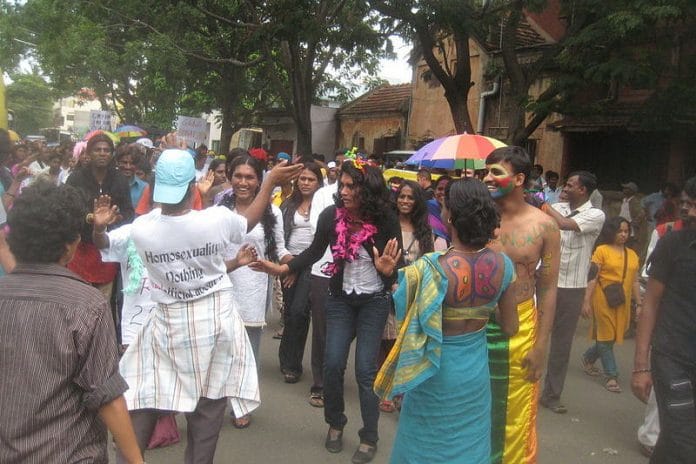Experts say an array of issues will throw themselves open to the privacy test after the Supreme Court ruled the right to privacy as a fundamental right.
In a landmark verdict that is expected to have far-reaching legal implications for an array of cases, a nine-judge Constitution bench of the Supreme Court unanimously ruled Thursday that right to privacy is a fundamental right under the Constitution.
Legal experts say that the court’s affirmation to privacy being an inviolable constitutional right could have a direct impact on many cases involving an individual’s bodily integrity as well as sexual orientation.
“The judgment gives enough ground to repudiate the earlier Supreme Court verdict on Section 377,” a lawyer closely involved in the case said, on condition of anonymity.
“It will go away the moment the matter is heard in the court next,” the lawyer added.
The judgement on privacy does, in fact, mention sexuality.
“Sexual orientation is an essential attribute of privacy. Discrimination against an individual on the basis of sexual orientation is deeply offensive to the dignity and self-worth of the individual. Equality demands that the sexual orientation of each individual in society must be protected on an even platform,” the judgment reads.
A curative petition challenging Section 377 of the Indian Penal Code, which criminalises intercourse between same-sex couples, is lying with the apex court, and is likely to benefit from the recent judgment.
The traditional argument in favour of Section 377 has been to protect women and children from sexual abuse — an argument frequently questioned given the fact that the section is seldom used to intervene in matters of heteronormative couples.
But this judgment goes further in piercing holes in the frequently made argument.
“Privacy must not be utilised as a cover to conceal and assert patriarchal mindsets,” the judgment reads. The bodily integrity and privacy of women and children then must not be used as an excuse to infringe on the right to privacy of homosexual couples, it may be inferred.
The judgment could also potentially have implications on the legal validity of marital rape – especially a case being heard in the Delhi high court. The state must be enabled to “take the violation of the dignity of women in the domestic sphere seriously,” the verdict says.
A division bench of the Delhi high court is currently hearing a PIL against the penal code provision that protects husbands from being tried for the rape of their wives.
“I hope that the judgment would have an immediate impact on the case,” says Karuna Nundy, a lawyer appearing for the petitioner.
“LGBT rights and intimacy rights have an inherent component of privacy,” she added.
The government, which had argued in court, that privacy is not a fundamental right, has also argued against criminalising marital rape. “It is considered that the concept of marital rape, as understood internationally, cannot be suitably applied in the Indian context due to various factors like level of education/illiteracy, poverty, myriad social customs and values, religious beliefs, mindset of the society to treat the marriage as a sacrament, etc,” women and child development minister Maneka Gandhi had said last year.
The surrogacy bill approved by the union cabinet last year may also now have to be reworked to ensure that the privacy of the surrogate mother and other parties is protected under law, explained advocate Indira Jaising.
While the actual impact of the judgment on other cases will become clear as the hearings in specific cases proceed, it may be safe to say that with a nine-bench Supreme Court verdict unequivocally arguing in favour of privacy, an array of issues will throw themselves open to the privacy test, experts said.






